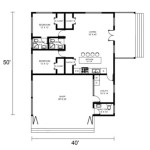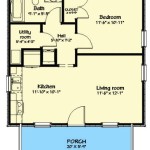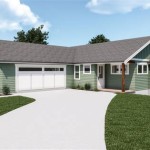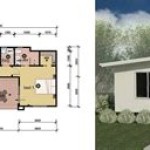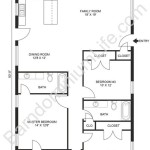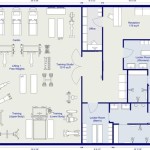House Plans with Garage in Basement: A Comprehensive Guide
A garage in the basement can be a valuable asset to any homeowner, offering ample storage space, protection from the elements, and potential for additional living space. However, incorporating such a design into your home requires careful planning and consideration. This guide delves into the advantages, challenges, and key aspects of house plans featuring basement garages, equipping you with the knowledge needed to make informed decisions about your future home.
Advantages of a Basement Garage
A basement garage presents several advantages that can significantly enhance your home's functionality and value.
- Weather Protection: A basement garage provides a secure haven for your vehicles, shielding them from rain, snow, hail, and extreme temperatures. This can extend the lifespan of your vehicles and minimize maintenance needs.
- Additional Storage: With the garage located below ground, you can utilize the entire basement floor for various storage purposes. This is particularly beneficial for storing seasonal items, tools, and recreational equipment, freeing up valuable space in your main living areas.
- Potential for Living Space: Depending on local building codes and your budget, the basement garage can be converted into a finished living space. This can add extra bedrooms, a home office, a recreation room, or even a guest suite, expanding your home's living area without encroaching on valuable ground-level real estate.
- Increased Home Value: A basement garage can increase the value of your home. Potential buyers often appreciate the added storage space, weather protection, and potential for future expansion.
Challenges of a Basement Garage
While a basement garage offers numerous benefits, there are also specific challenges to consider when planning your home.
- Construction Costs: Excavating and constructing a below-ground garage can be more expensive than building a traditional above-ground garage. You'll need to factor in additional costs for foundation work, drainage systems, and potentially specialized waterproofing.
- Accessibility: Accessing a basement garage can be a bit more cumbersome than walking into a standard garage door. You'll need to consider the accessibility of the entrance, particularly for individuals with mobility limitations.
- Potential for Moisture: Basements are inherently more prone to moisture issues than ground-level garages. Proper waterproofing and drainage systems are essential to prevent mold and mildew growth. Adequate ventilation is also crucial to ensure air circulation and minimize moisture buildup.
- Limited Natural Light: Basement garages typically receive less natural light than ground-level garages. You'll need to plan for adequate artificial lighting to ensure safety and visibility.
Key Considerations for Basement Garage Design
When designing a house plan with a basement garage, there are several critical factors to address:
- Site Analysis: Start by carefully analyzing your building site. Consider the soil conditions, groundwater levels, and the presence of underground utilities. This information will inform the feasibility and complexity of excavating the basement.
- Garage Size: Determine the size of the garage based on your needs. Consider the number of vehicles you need to accommodate, storage requirements, and any future expansion plans. Aim for a garage that's at least 12 feet wide and 20 feet deep, but larger if necessary.
- Entrance and Exit: Plan the entrance and exit points for your basement garage carefully. Ensure ample driveway space and a safe and convenient entrance.
- Waterproofing and Drainage: Invest in a comprehensive waterproofing system to protect your basement garage from moisture penetration. Proper drainage is essential to prevent water accumulation and dampness.
- Ventilation: Adequate ventilation is crucial for a basement garage. Install exhaust fans and vents to help remove moisture and ensure proper air circulation.
- Lighting: Plan for adequate lighting to ensure safety and visibility. Consider using a combination of natural light from windows and artificial lighting.
By carefully considering the advantages, challenges, and key design considerations, you can determine if a basement garage aligns with your specific needs and priorities. It's essential to engage with experienced architects and contractors to ensure a successful and functional basement garage that enhances your living space and provides years of enjoyment.

Drive Under House Plans With Basement Garage The Designers

Simple House Floor Plans 3 Bedroom 1 Story With Basement Home Design 1661 Sf Ranch

Drive Under House Plans With Basement Garage The Designers

Hillside House Plans With Garages Underneath Houseplans Blog Com

Drive Under House Plans

Drive Under House Plans With Basement Garage The Designers

House Plans With Basements Blog Dreamhomesource Com

One Story House Plans Daylight Basement Side Garage

C 511 Unfinished Basement Floor Plan From Creativehouseplans Com

Drive Under House Plans With Basement Garage The Designers

